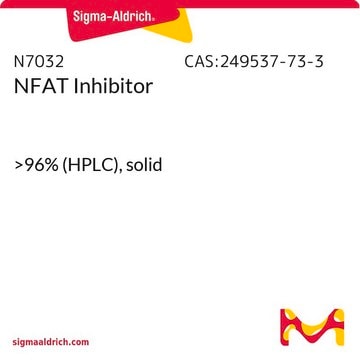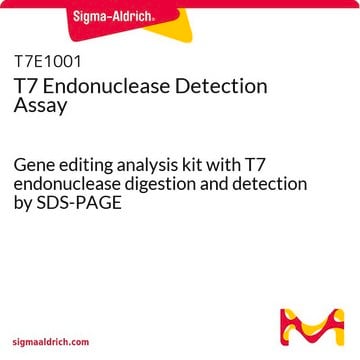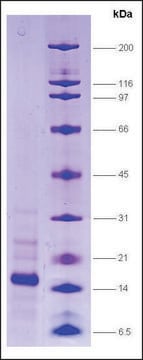SRP2013
RNA Polymerase II Peptide
≥85% (SDS-PAGE), recombinant, expressed in E. coli
Sinónimos:
POLRA, RPB1, RPO2, RPOL2, hRPB220
About This Item
Productos recomendados
product name
RNA Polymerase II, C-terminal human, recombinant, expressed in E. coli, ≥85% (SDS-PAGE)
biological source
human
recombinant
expressed in E. coli
assay
≥85% (SDS-PAGE)
form
frozen liquid
mol wt
~42.2 kDa
packaging
pkg of 10 μg
storage condition
avoid repeated freeze/thaw cycles
concentration
400 μg/mL
color
clear colorless
NCBI accession no.
UniProt accession no.
shipped in
dry ice
storage temp.
−70°C
Gene Information
human ... POLR2A(5430)
Categorías relacionadas
General description
Biochem/physiol Actions
Physical form
Preparation Note
Storage Class
10 - Combustible liquids
wgk_germany
WGK 1
flash_point_f
Not applicable
flash_point_c
Not applicable
Certificados de análisis (COA)
Busque Certificados de análisis (COA) introduciendo el número de lote del producto. Los números de lote se encuentran en la etiqueta del producto después de las palabras «Lot» o «Batch»
¿Ya tiene este producto?
Encuentre la documentación para los productos que ha comprado recientemente en la Biblioteca de documentos.
Nuestro equipo de científicos tiene experiencia en todas las áreas de investigación: Ciencias de la vida, Ciencia de los materiales, Síntesis química, Cromatografía, Analítica y muchas otras.
Póngase en contacto con el Servicio técnico







